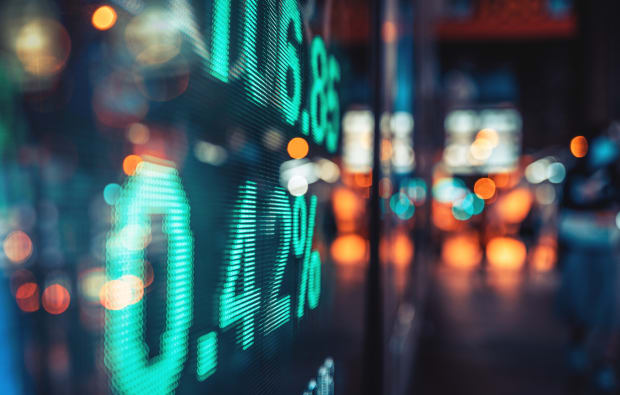The stock market has rebounded in recent weeks, with the S&P 500 up 8% since June 16, as investors have been bottom-fishing.
Some attribute the stock gains to second-quarter earnings beating expectations for certain companies, such as Netflix (NFLX) and Tesla (TSLA).
Others say inflation will soon peak and that the Federal Reserve won’t have to raise interest rates much more. And still others say the economy isn’t about to enter recession.
So what does all this mean for the market going forward, can we expect more gains? Don’t hold your breath for it, says Mark Haefele, global wealth management chief investment officer at UBS.

‘Elevated Uncertainty’
“We don’t expect a sustained improvement in market sentiment until investors get greater clarity on the outlook for the economy, central bank policy, and political risks,” he wrote in a commentary. “Uncertainty in all of these areas remains elevated.”
The U.S. economy shrank an annualized 1.6% in the first quarter, and many analysts anticipate a negative number for the second quarter as well.
“Recent inflation data has continued to surprise on the upside,” Haefele noted. That includes the 9.1% surge (a 40-year high) of U.S. consumer prices for the 12 months through June.
“Many central banks around the world have been tightening more than forecast,” he said. That was the case last week with the European Central Bank’s 50-basis point increase in its benchmark lending rate.
As for the Fed, the consensus call is for a 75-basis point increase July 27, but a bigger hike “remains a possibility, raising the risk of further volatility,” Haefele said.
Political Risk
Then there’s the Ukraine war. “Political risk is also likely to remain high,” he said. “Russia has demonstrated its readiness to use energy flows as a tool to increase pressure on its adversaries, regardless of forgone export revenues.”
Russia’s Gazprom PJSC announced July 25 that it will slash natural gas flows on the Nord Stream pipeline to Germany to about 20% of capacity July 27.
All the Russian energy-export cutbacks combine to “pose considerable headwinds for the European economy,” Haefele said.
Given all this economic and political ambiguity, he recommends investing in :
1. Value stocks. “Value sectors tend to outperform growth stocks when inflation is above 3%, which is likely to be the case for some time,” Haefele said. “We favor the U.K. market, which has a high weighting toward value sectors.”
2. Defensive and quality stocks. “To build up defenses against a potential slump scenario, in which weaker economic data drives lower corporate profit expectations and further downside in stocks, we believe investors should add exposure to quality-income stocks, the healthcare sector, resilient credits, and the Swiss franc.”
Haefele’s uncertainty makes a lot of sense. It’s very difficult to know how much further the Fed will raise rates, when inflation will peak and how far it will slide and whether the economy will fall into recession soon.
So it would seem like a defensive investment strategy is quite prudent now. Part of that might involve buying some bonds, which are sporting much higher yields than they have for the last 10 years.







